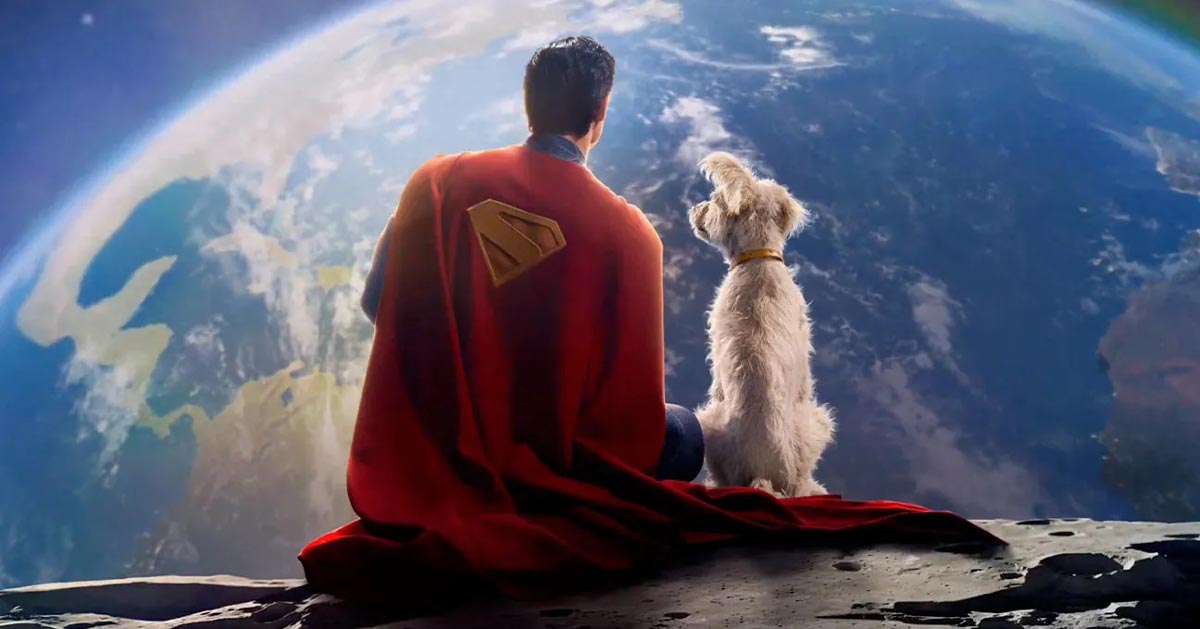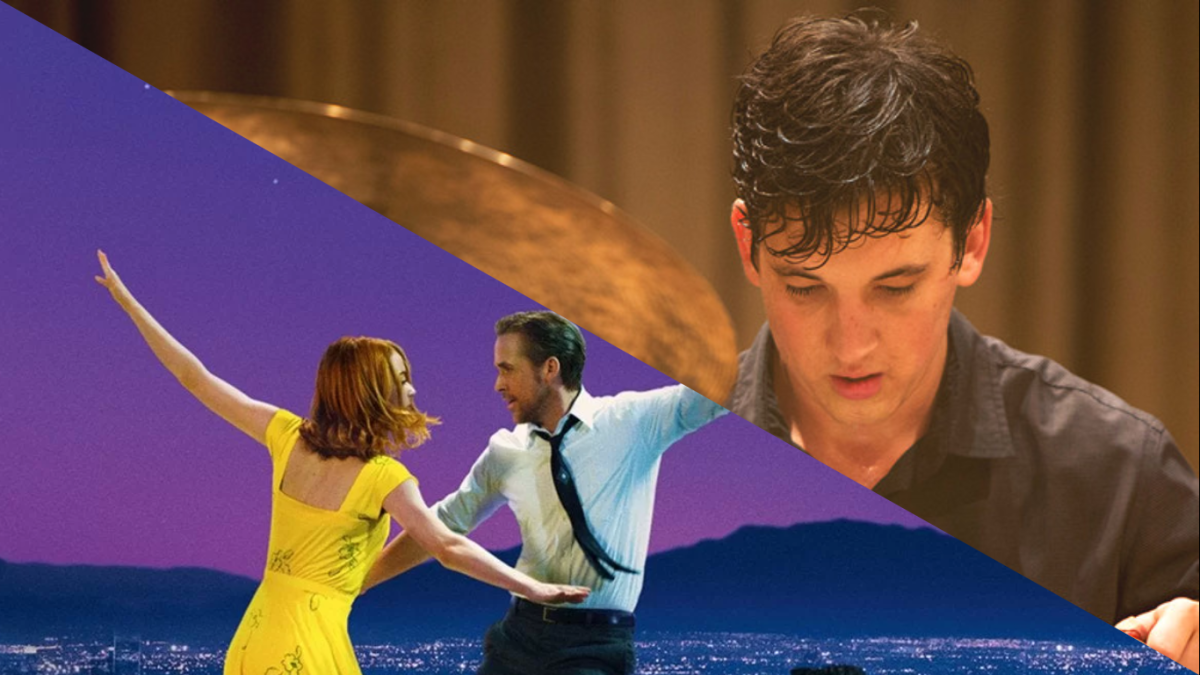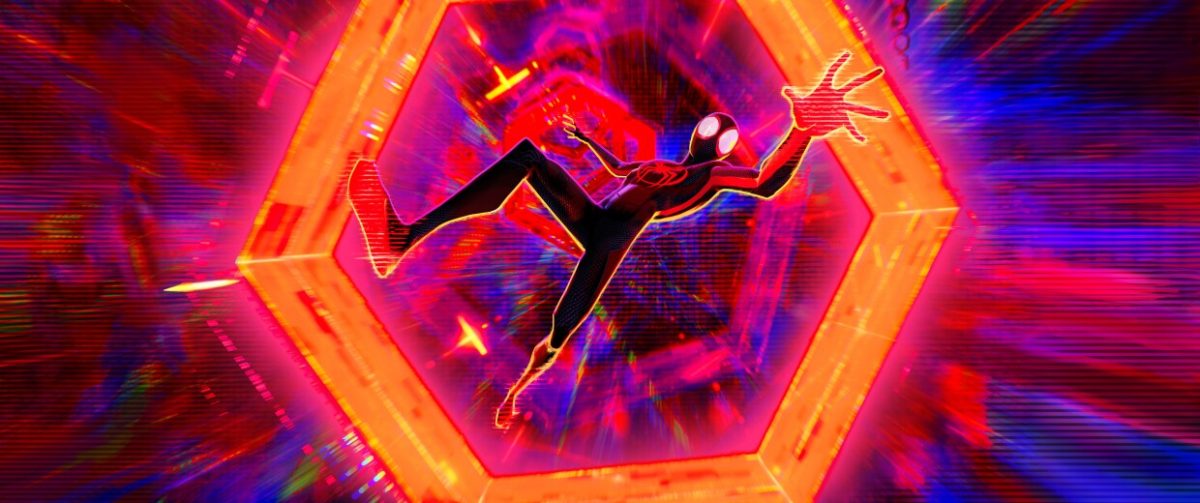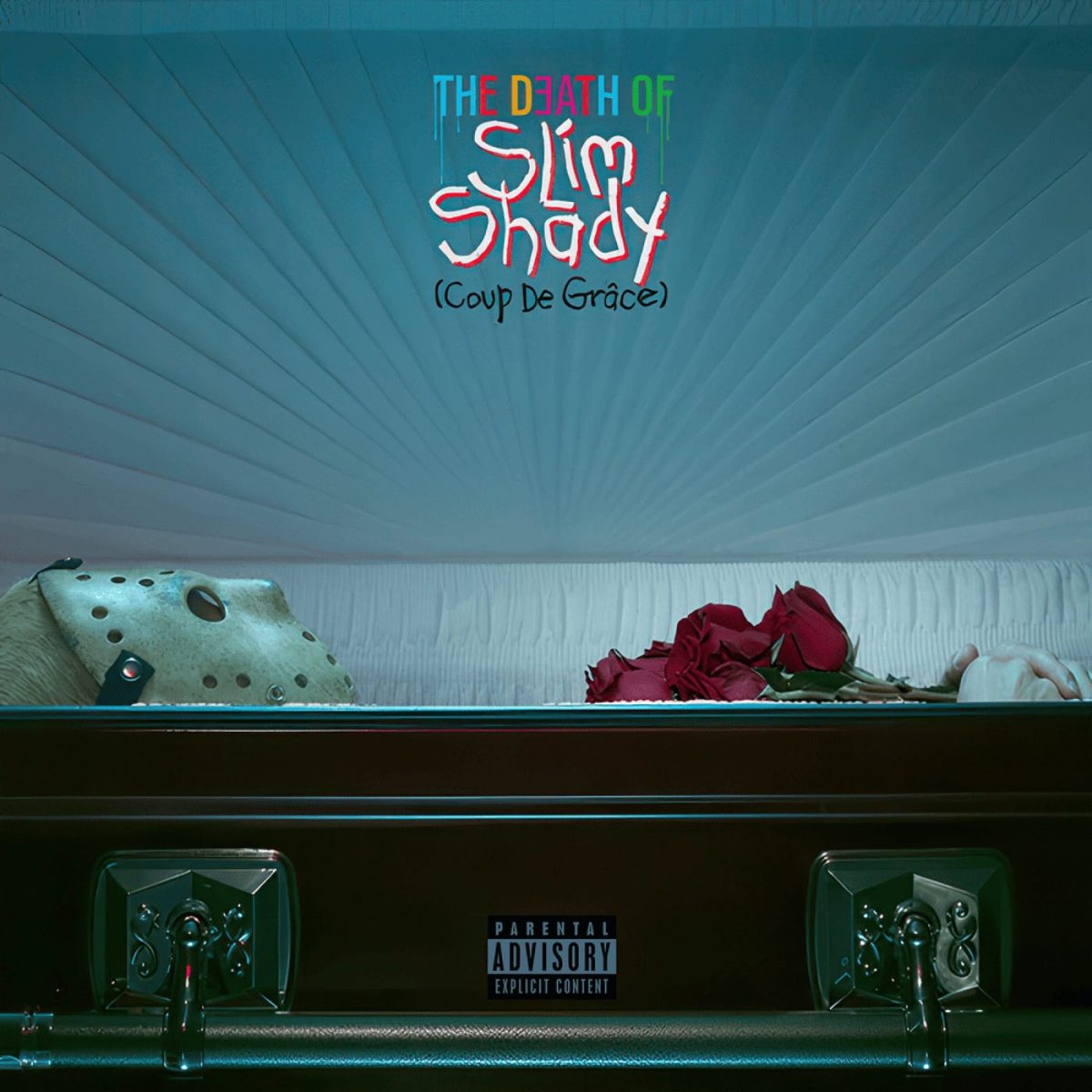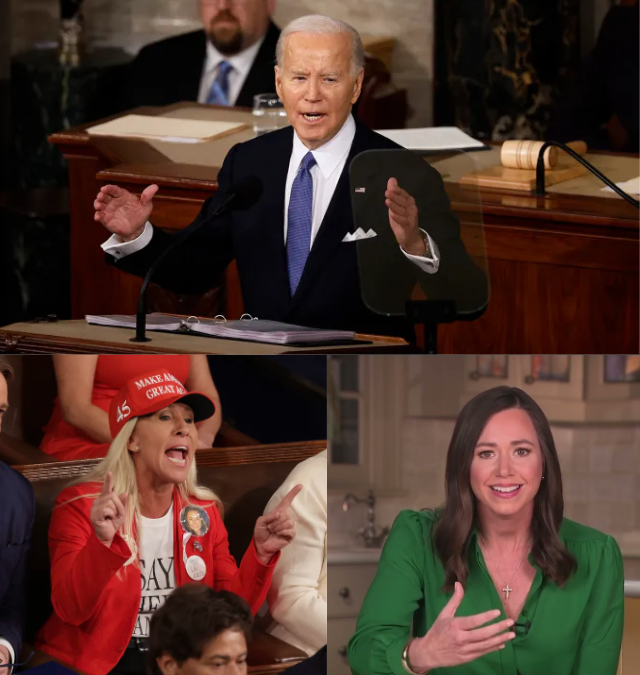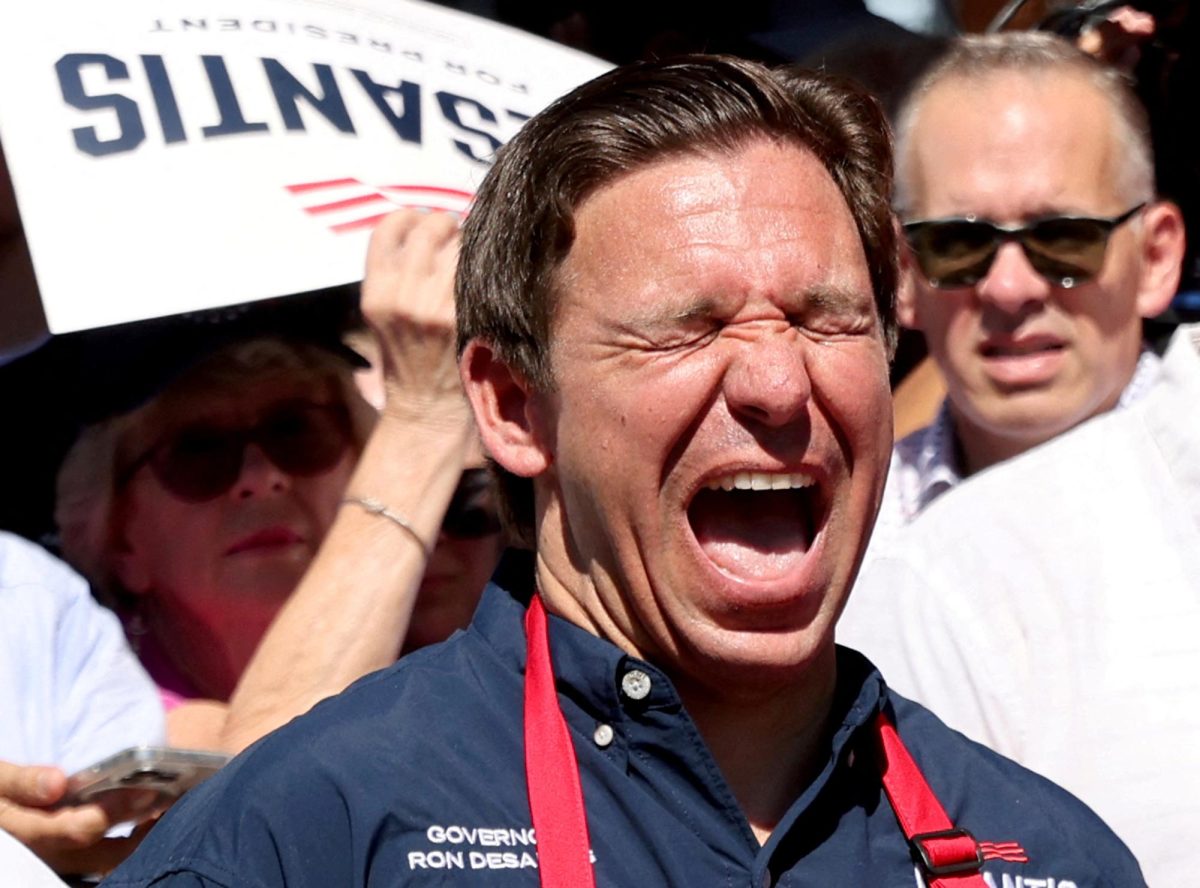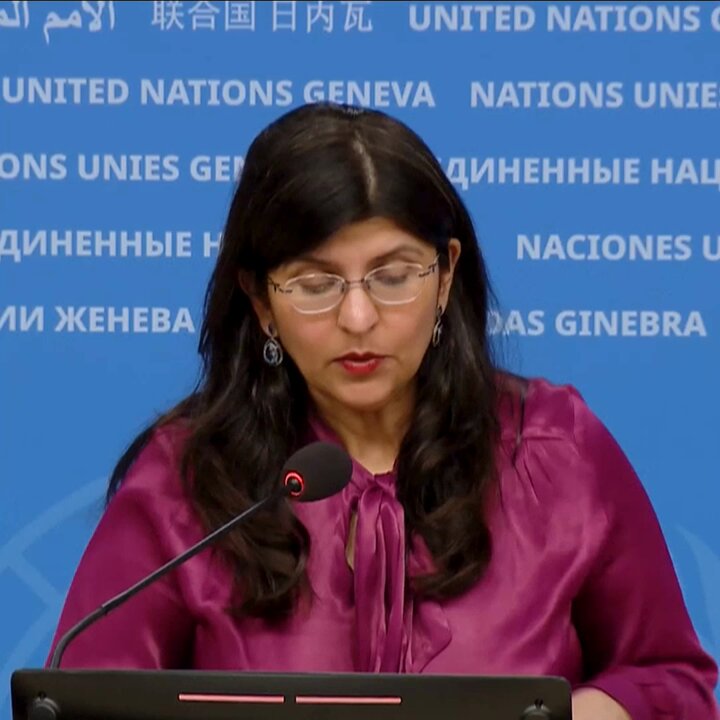Superman (2025) is a vivid change in direction for DC away from a far more gritty, dark, and cynical direction of Zack Snyder, toward a strikingly vibrant, hopeful direction, characteristic of much of James Gunn’s filmography. This hopeful theme permeates nearly every aspect of the film from the color pallet, to the tagline. Whilst Snyder’s films often felt very desaturated with oppressive cramped camera angles which often feel overbearing, on the contrary you have Superman (2025) in which Gunn utilizes a wide array of colors to saturate this mystic world while simultaneously focusing on creating more open shots, which put emphasis on the fact that Superman is greater than himself. Throughout this entire film Superman doesn’t simply do everything by himself, he surrounds himself with others whether this be the Justice Gang or reporters from the Daily Planet in order to make a difference in the world around him and genuinely make the world a better place. The tagline of this film also serves a rather poignant purpose; the tagline is simply “Look up” representing the true transformation of the character from the Snyder films to Superman (2025), with this film looking to create a brighter and more optimistic Superman. The idea of “looking up” is one which has a long history within media, serving to create a feeling of hopefulness and optimism through the idea of looking toward the future with hope, as opposed to “looking down” often characterized as if you are looking back at the past with despair. Along with this, the tagline creates a sense of childlike wonder with it alluding to the original tagline of Superman, “Look up in the sky, it’s a bird, it’s a plane, no it’s Superman!”.
This film already assumes that you understand the basic story of Superman, as such it doesn’t take much time to properly introduce him. In my opinion, this is one of the largest strengths of the film; it knows you already possess a baseline understanding of this character, and as such doesn’t hold your hand in characterizing him by simply telling you how to feel about him; rather, the film allows you to make your own judgements of this version of Superman. This simple approach allows for far more of the runtime of the movie to introduce new character previously unseen on the big screen, such as Hawkgirl, Guy Gardner and Mr. Terrific, whilst simultaneously continuing to develop the characters you would expect to see in the average Superman film such as: Clark Kent, Lois Lane, Lex Luthor, and Jimmy Olsen. This excess runtime, which could have been used for backstory, is utilized to perfection, with every character feeling properly developed by the end credits. Within this runtime they focus on creating two conflicting images of Superman: his Kryptonian heritage, which characterizes him as an almost almighty being; and his earthly heritage, which characterizes him as an everyday guy who grew up in the country. During the beginning acts of the film, it puts rather heavy emphasis on Superman’s Kryptonian identity, seldom mentioning his farm boy heritage on Earth, but as the film progresses and his relationship with his Kryptonian identity becomes increasingly tenuous as the true intentions of his parents are revealed, where it is unveiled that the intent behind his arrival was inherently malicious. Once this happens Superman escapes to his parents house in the country, in order to become more in tune with his Earthly heritage. As a result, the film shifts its focus accordingly, with it focusing on Superman’s earthly heritage. This paradigm shift is most obviously displayed by what Superman watches while in the Fortress of Solitude; while at the beginning of the film he simply says “Show me the video of my parents”, and then watches a clip sent with him from his parents on his way to Earth. Toward the end of the film, he utters this same phrase; rather than the clip of his Kryptonian parents, he’s encircled by home videos of his childhood on Earth, emphasizing a clear change within his character with him becoming evermore human.
Whilst past films have characterized Superman as a far more stoic figure, this film truly allows for Superman to have emotion, to actually care about what he’s doing. This acts as yet another great strength of this film, Superman finally actually feels human. This serves as a large plot point throughout the entire movie with this more humanistic view of Superman providing a poignant metaphor. The entire film centers on the conflict between Superman and Lex Luthor, Lex’s hatred for Superman is based purely off of his origin, which makes him extremely skeptical of his true intentions and as a result vows to take Superman down in any way possible. To meet this end, Lex creates a severe regional conflict between Boravia and Jahranpur–two fictional countries which appear within the DC universe– in order to gain an opportunity to hoist Superman from the pedestal which he believes the public has erroneously placed Superman upon. This basic idea has deep roots within our modern society, with how anti-immigration sentiments have spread so quickly and wildly throughout many countries recently. This film expresses this point of view through the eyes of Lex Luthor who–as stated previously–has no real reason for hating Superman, except for the place of his origin. This sentiment serves as a poignant metaphor for many individuals who consider themselves “anti-immigrant”, they typically don’t have an actual distaste of immigrants for any actual concrete reason. The actual root of this discontent is often typified by other domestic issues—such as crime and employment–and while immigrants often don’t–or seldom–affect these issues, often due to xenophobic reasons people blame immigrants for exacerbating these problems, just as Lex Luthor does within Superman (2025). This film flips this entire idea on its head, showing Superman as a uniquely human in nearly every way possible, serving as a metaphor just as Superman is human–just like the rest of us– immigrants are too and they should be treated as such. Throughout the entire film we see Superman time and time again prove himself as human through his compassion for others which continues to inspire him to actually do good no matter the adversity, which follows. This idea culminates in the ending monologue where Superman reflects on Lex’s idea of him, painting him as this haphazard alien who has come to destroy Earth and enslave the human race, where Superman, rather than becoming enraged and attacking him, discusses his own humanity, the fact that he cries, he becomes confused and despite it all continues onward trying to do what’s best for everyone no matter what adversity he faces.
In all, this film simply floored me. Its human focus really grounds this film in a sort of reality, where despite all the comic-like action, the film still feels life-like. The way James Gunn chose to characterize everyone in this film helps to reinforce these ideas: the comically evil Lex Luthor, reinforcing the stupidness of hate; the grounded Superman, bridging apparent gaps in Superman’s origin–his Kryptonian self and his human self; and the eccentric Green Lantern, allowing for a partial comedic influence to enter the film, reinforcing ideas of humanity. I could go on about how each character individually helps to contribute to the overall themes within this film, and that’s what makes this film so special; it’s not the flashy action sequences or the dazzling CGI; rather, it’s this uniquely human take on the basic Superman story, which really makes this film stand out from the rest of DC’s filmography.


